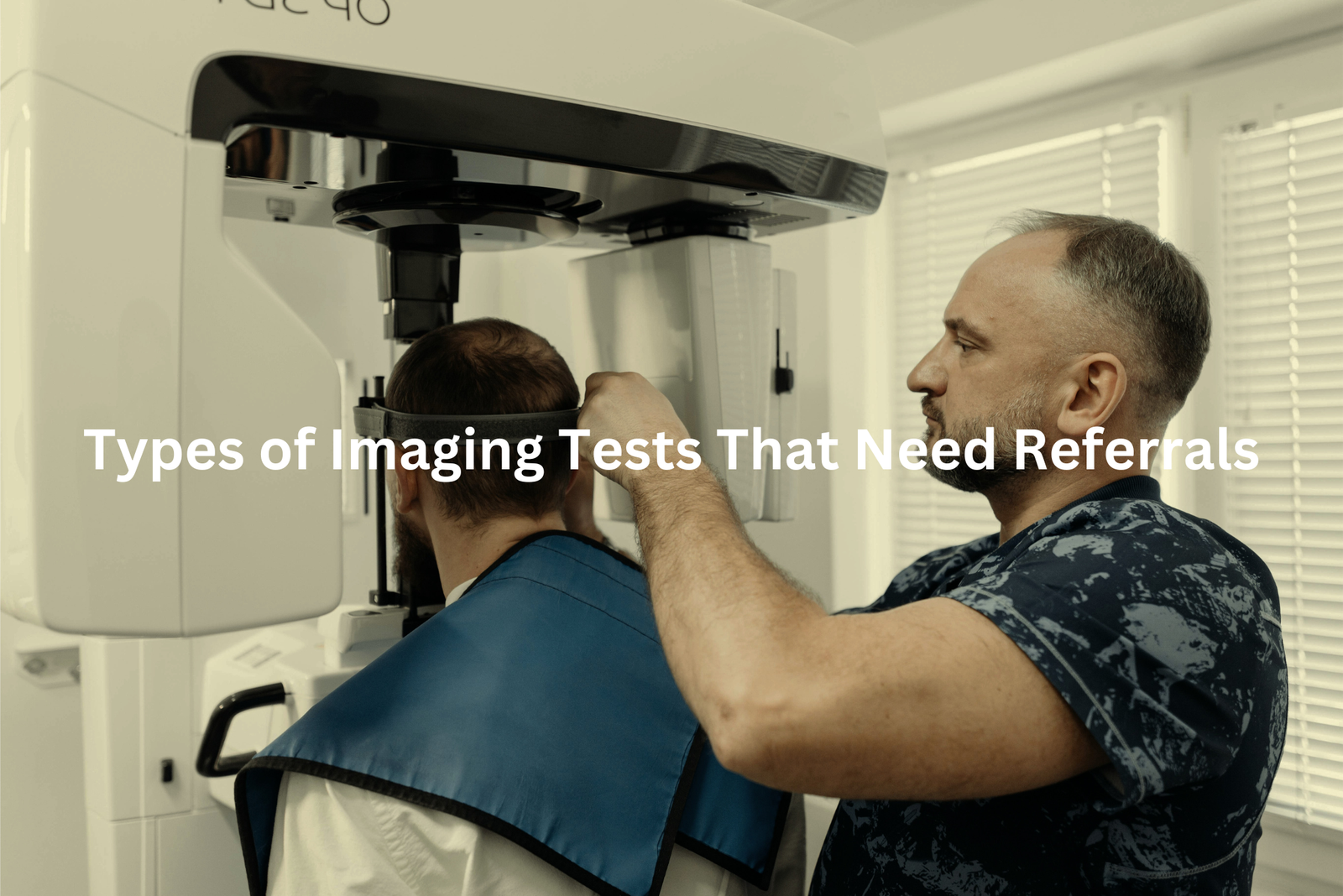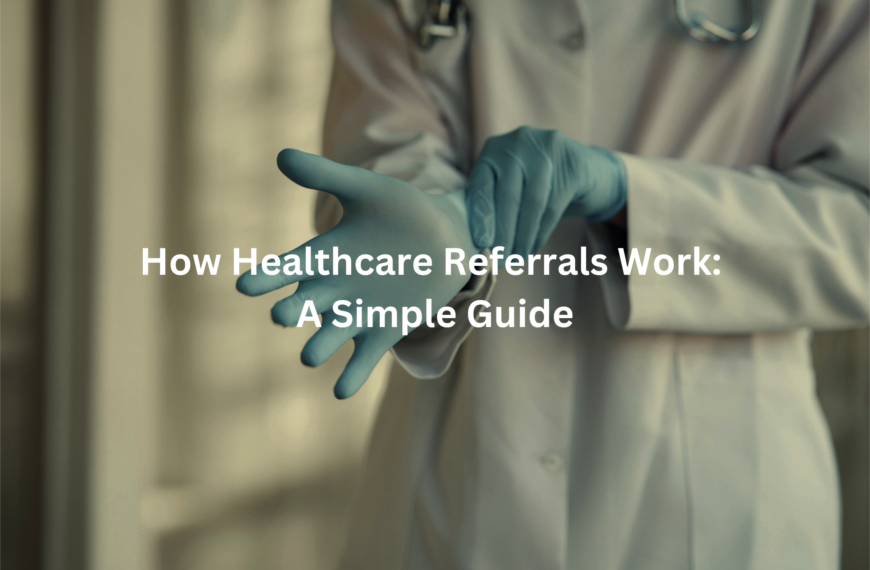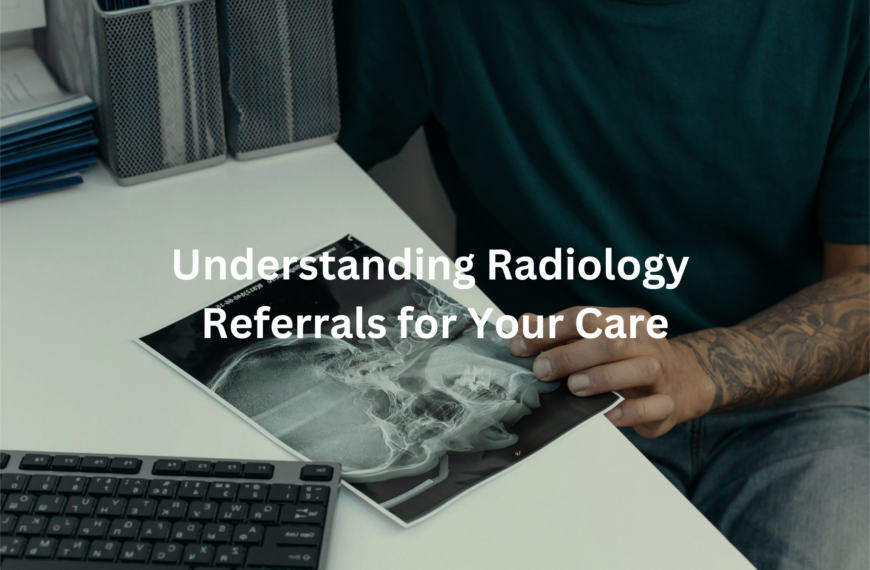Wondering how Medicare referrals work in Australia? Find out how your GP’s referral can get you the specialist care you need for better health.
Medicare is Australia’s health care system. If you want to see a specialist, you usually need a referral from your GP (general practitioner). This means your GP will write a note to recommend you to a specialist who can help with your specific health issue. The referral helps you get the right care and can sometimes make your appointment cheaper.
It might feel a bit confusing at first, but understanding these steps is important for your health. Keep reading to learn more about how Medicare and referrals work, so you can get the care you need when you need it!
Key Takeaway
- Medicare covers a lot of health services, including specialist referrals.
- Getting a referral is important to see doctors with special training.
- Patients should keep track of their referrals and ask questions if needed.
The Role of Medicare
Medicare is like a safety net holding up Australia’s health care system(1). It’s there when people need it most, covering the costs of many essential services. Last year alone, Medicare spent over $1.3 billion on specialist consultations. That’s a huge number, and it shows how important referrals are for getting the right care when it’s needed.
Referrals work like a bridge between your GP and a specialist. They’re not just a piece of paper; they’re a way for your GP to connect you to the right expert for your health issue. Without a referral, seeing a specialist can be hard—or sometimes not even possible. GPs don’t just write referrals; they listen, assess, and guide you to the right care.
I remember my mate Liam. He had constant back pain that wouldn’t go away. His GP referred him to a spine specialist, someone who really knew their stuff. A few months later, after treatment, Liam was back to kicking the footy with us. If you think you need a specialist, start with your GP. Ask questions about the referral process. It’s worth it. Medicare helps cover a lot of these costs, so you’re not alone in this.
Importance of Referrals
Referrals are like a bridge in healthcare. They connect patients to specialists who can focus on their specific health concerns. About 40% of GP visits end with a referral—that’s nearly half! For many, it’s the next step in understanding or treating what’s wrong.
A referral isn’t just a note. It’s a roadmap. Here’s what it usually includes:
- Your medical history: Key details about past conditions or treatments.
- Current symptoms: What’s happening now, like pain or unusual changes.
- Specific instructions: Tests, scans, or procedures the specialist should consider.
This information saves time. Specialists don’t need to guess—they can jump straight into figuring out what’s next.
I remember my uncle, who had sudden vision issues. His GP suspected a retinal tear and sent him to an ophthalmologist with a detailed referral. The specialist found the problem in one appointment, and he got treated the same week. Without that referral, it could’ve dragged on for months.
Referrals also help manage healthcare costs. Medicare often requires them for specialist visits to ensure resources are used wisely.
If you think you need a referral, speak up during your GP visit. Mention your symptoms and any history that might be important. A little extra information from you helps them write a better referral. And that’s good for everyone—faster answers, better care, less waiting around.
How the Referral Process Works
It usually begins in a quiet room at your GP’s office. You sit down, maybe fidgeting a bit, while the doctor clicks through their computer. They ask about your symptoms, jot down a few notes, and then comes the part that might change everything—a referral. A referral isn’t just a piece of paper. It’s a roadmap. It tells a specialist what to look for, what to check, and why you’re being sent to them in the first place(2). The letter usually includes:
- Your symptoms: Whatever’s been bothering you.
- Your health history: Important details about past conditions or treatments.
- A clear reason for the referral: This gives the specialist a direction to start from.
Once you’ve got the referral, the ball’s in your court. You’ll need to book the appointment, whether it’s with a specialist or at an imaging centre. Keep the letter safe—it’s like your ticket in. It’s a good idea to write down the specialist’s name, the date, and the time of your appointment. Miss any of these, and things can get messy. My friend once forgot to confirm her booking, and she had to wait another six weeks just to get in.
If you’re unsure about anything, ask your GP. They can help explain the process or even recommend someone. It’s not complicated, really—it’s just about being organised and staying on top of things.
Types of Imaging Tests That Need Referrals

The waiting room always feels slower when you’re there for imaging. There’s a steady hum of voices, a faint scent of hand sanitiser, and the shuffle of people clutching their referral letters. Some hold them tightly, like tickets to a show they’d rather skip.
These tests—X-rays, MRIs, CT scans—aren’t just machines making weird noises. They’re windows into the body, showing what you can’t see on the surface.
- X-rays are the quickest (and probably the most familiar). They snap pictures of bones, like spotting fractures or infections.
- MRIs (Magnetic Resonance Imaging) are more complex. They use magnets to take detailed images of soft tissues, like muscles or the brain. They’re long, loud, and sometimes a bit claustrophobic, but the clarity is worth it.
- CT scans (Computed Tomography) are like X-rays but on steroids. They take cross-sectional images, showing slices of your body. These are lifesavers in emergencies.
Each test needs a referral from your GP. That letter tells the radiologist (or imaging tech) what to focus on. My mum once had to get a CT scan after a nasty car accident. Without that referral, they wouldn’t have known to check for internal bleeding.
If you’ve got an imaging appointment, show up early. Wear comfortable clothes, and leave your jewellery at home (MRIs and metal don’t mix). And keep that letter handy—it’s your key to getting answers.
Validity of Referrals
Sources: Avant Mutual.
A referral for imaging is like a hall pass for your health. It’s valid for 12 months, giving you a year to get any imaging tests your doctor suggests—like an X-ray now or an MRI later(3). This can save time, especially if you need multiple scans. My mum had one last year for her hip. She used it for an X-ray in March and then an ultrasound in July. Same referral, no extra GP visits.
But there’s a catch. Referrals are usually tied to one clinic or specialist. So, if you want to switch, you’ll need to check first. And after 12 months, it expires—even if you haven’t used it. Tip: Take a photo of your referral and note the date. If you’re unsure it’s still valid, call your GP or the clinic. They’ll know. It’s better than showing up and finding out it’s expired!
Patient Responsibilities

When you’re juggling medical appointments, it can get overwhelming. There’s a lot to remember. And while your GP does their best to help, as the patient, you’ve got some responsibilities too. One of the biggest is keeping track of your referrals.
Here’s what to do:
- Write down the details: Who is the specialist? When is the appointment? What tests do you need? These are the basics.
- Keep a copy of the referral: You don’t want to be stuck without it when you turn up for an appointment.
- Ask questions: If you’re unsure about something (like what exactly the test involves or where you’re meant to go), ask your GP. They’re there to help you understand.
It sounds simple, but it’s easy to forget things in the chaos of life. For example, I remember my mate forgetting to note the time of his X-ray appointment. He showed up an hour early, thinking it was at 10, but it was actually 11. Thankfully, he was able to get it sorted, but it’s a reminder of how important it is to stay on top of your appointments.
So, keep a little notebook (or make notes on your phone) to track the dates. And don’t be afraid to check in with your GP whenever something’s unclear. They’ll probably appreciate the extra effort.
FAQ
When do I need a referral from a health professional for Medicare?
You generally need a referral from a health professional like a doctor, Nurse Practitioner, or Allied Health Professional to get Medicare coverage for specialist doctors, allied health services, diagnostic imaging, and some other services. The referral allows Medicare to cover part of the cost.
Can any doctor or health professional give me a referral?
Most referrals need to come from a “consultant physician” like a GP, specialist doctor, or some Nurse Practitioners and Allied Health Professionals. They have the right qualifications to assess your condition and provide a valid referral for Medicare.
How long is a referral valid for?
Referrals can be valid for an “indefinite period” meaning you can use the same referral for multiple visits over time. Some referrals expire after a set “referral period” like 12 months. Ask your health provider about the length of your specific referral.
Do I need a new referral each time I see a specialist?
You generally only need one referral to see a specialist, but you may need a new referral if:
- You need to see a different specialist for a new health condition
- It’s been over 12 months since your last visit
- Your health provider indicates you need a “replacement referral”
How do I get a referral for mental health services?
You can get a referral for Medicare-covered mental health services from your GP, psychiatrist, or some Nurse Practitioners and Allied Health Professionals. This allows you to access services like psychology, counselling, and other mental health support.
Can I see an allied health professional without a referral?
You generally need a referral to get Medicare coverage for allied health services like physiotherapy, occupational therapy, and podiatry. However, you may be able to access some allied health services without a referral, but you would have to pay the full cost out-of-pocket.
How do I know if a service is covered by Medicare?
You can check if a service is covered by Medicare on the MBS Online website. This will show you the Medicare “item number” and the benefit payable. You can also ask your health provider about Medicare coverage.
Can I get a referral for diagnostic imaging services?
Yes, you typically need a referral from a medical practitioner to get Medicare coverage for diagnostic imaging services like X-rays, CT scans, and MRIs. The referral allows Medicare to cover some of the cost.
Conclusion
Medicare and referrals are super important for getting the health care you need in Australia. Knowing how they work can help you a lot. If you want to see a specialist, always talk to your GP first about getting a referral. Keep track of your referrals, and don’t be shy to ask questions if you need to. Your health matters, so understanding the system can help you find the best care possible. It’s all about taking charge!
References
- https://www.aihw.gov.au/reports-data/health-welfare-services/medicare/overview#:~:text=Medicare%20is%20Australia’s%20universal%20health,scans%20and%20allied%20health%20services.
- https://cota.org.au/wp-content/uploads/2022/10/Referrals.pdf
- https://www.health.gov.au/sites/default/files/documents/2021/06/guideline-for-substantiating-that-a-valid-referral-existed-from-specialist-or-consultant-physician.pdf




